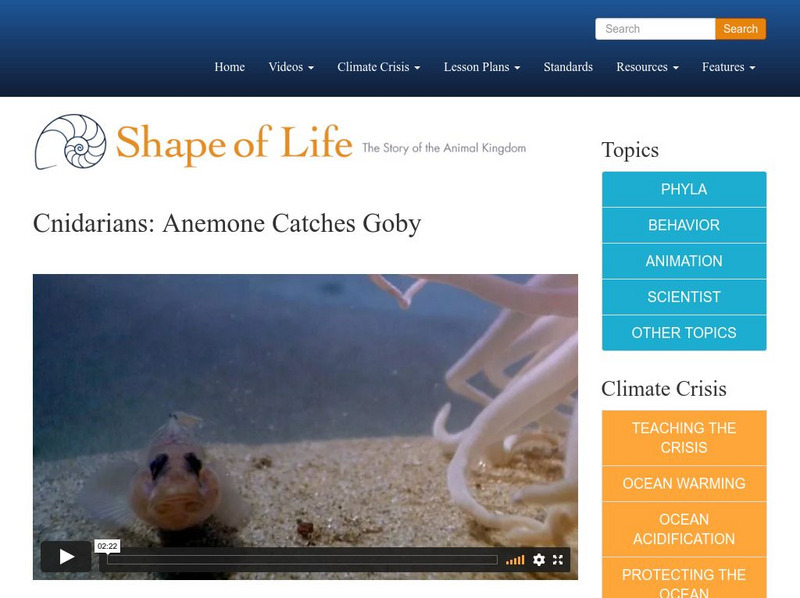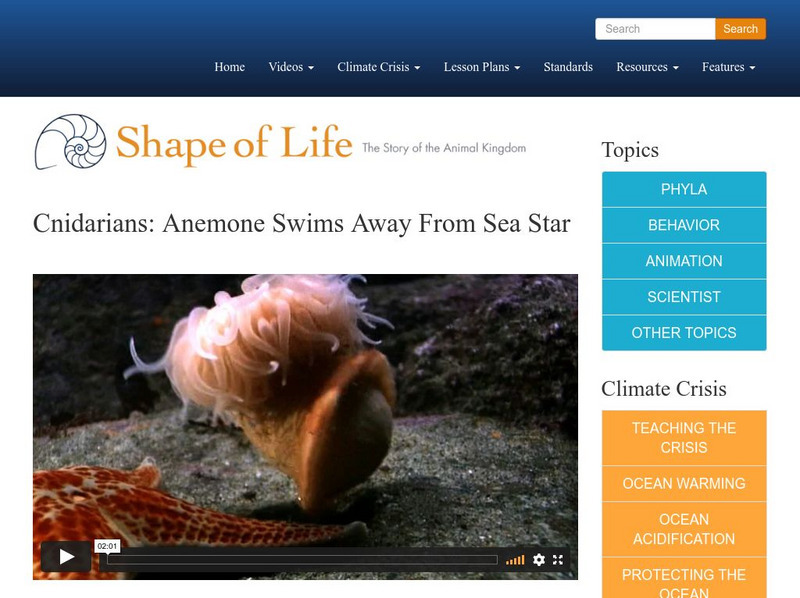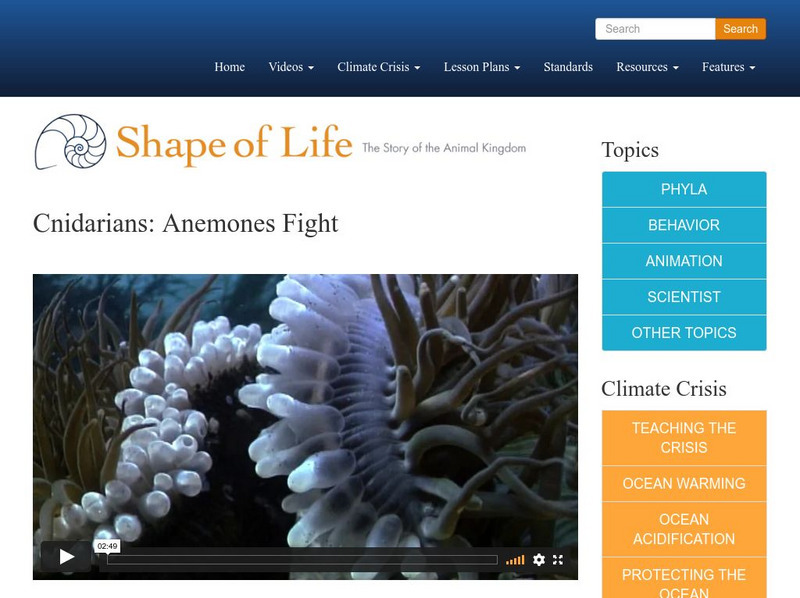Hi, what do you want to do?
Ancient Lights Media
Biological Classification - The Porifera & Cnidaria
Biological Classification Set: This clip introduces the phylum Porifera and the phylum Cnidaria.
Sea Studios Foundation
Shape of Life: Cnidarians: Life on the Move
Did you know that Cnidarians were the first animals to have muscles and nerves to produce behavior? They were also the first to have a mouth and stomach to digest food. This animiation will help you learn about nematocysts when we watch...
Sea Studios Foundation
Shape of Life: Cnidarians: Anemone Catches Goby
A video showing how an anemone catches it prey. A goby brushes against the tentacles of an anemone. The anemone catches its prey, the goby, using nematocysts lining its tentacles. Nematocysts shoot out like harpoons and contain deadly...
Sea Studios Foundation
Shape of Life: Cnidarians: Anemone Swims Away From Sea Star
Did you know anemones can swim? Watch this video that shows W=when attacked by a sea star, an anemone called Stomphia releases itself and contracts its body to swim away. [2:01]
Sea Studios Foundation
Shape of Life: Cnidarians: Anemones Fight
Two anemones aggressively fight using their specialized sacs loaded with nematocysts that contain toxins in this video. [2:49]
Sea Studios Foundation
Shape of Life: Cnidarians: Moon Jelly Life Cycle
A video documenting the jellyfish's life cycle. Moon jelly polyps divide off tiny juvenile jellyfish called ephyra. The juveniles will grow into adults that will spawn. The offspring will settle to the bottom and grow into tiny polyps....
Sea Studios Foundation
Shape of Life: Jack Costello, Biologist: Why Jellyfish Swim
Jack Costello studies how jellyfish move and feed. He dives to videotape moon jellies swimming and observes that they don't really move much. With this in mind, he seeks to answer the question: why do jellyfish spend their time swimming?...
Sea Studios Foundation
Shape of Life: Cnidarians: Deep Sea Research
The Monterey Bay Aquarium Research Institute launches an expedition to explore the depths of the ocean in search of cnidarians. Scientists find that jellyfish and other cnidarians are dominant in both moderate depths and the deep parts...
Florida State University
Florida State University: Hydra (Coelenterata) Movie #1
In this brief video, you will view the hydra swim toward you and reveal the length of its tentacles. This site also contains background information on the hydra.
Florida State University
Florida State University: Hydra (Coelenterata) Movie #2
In this short movie, you will observe two hydra fighting over prey. This interesting site also provides background information on hydra.













